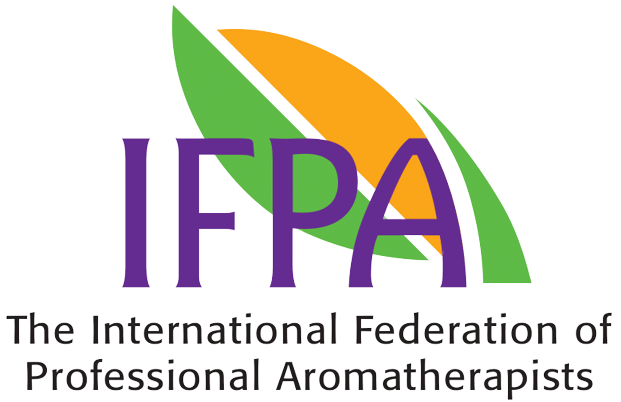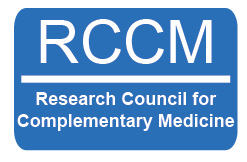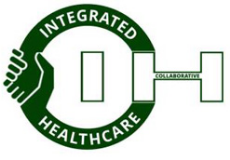Research & resources
Coronavirus safety
Index to the Brand Guidelines for training providers:
Since the first edition of these guidelines, many UK and Irish practitioners are now permitted to return to massage work if certain regulations are adhered to. The points in blue highlight changes made to this guidance since our last update. Note that government regulations below refer to England. Many of these are also applicable to members in devolved UK countries, Ireland and further afield.
1. General introduction
Members need to carefully prepare before returning to massage work. These preparations should be focused on infection prevention and control. These guidelines, along with the recommended further reading, are to help inform your approach and to work safely in your environment. In addition, members are expected to use their common sense, professional education and training in their decision making and check nationally issued government regulations.
The safety of members and their family, clients and the public is our overriding concern. In drawing up these guidelines, we have taken note of scientific and government advice, largely that issued in the UK where IFPA is based.
Members should familiarise themselves with and follow all guidelines issued by their government and other relevant bodies in their own country of practice. Members should be aware that in-country approaches can differ between devolved administrations, for instance between England, Scotland, Wales, Northern Ireland, and the Crown Dependencies.
The IFPA guidelines are advisory only. Be aware that individual government regulations change frequently. We are working hard to keep you updated; however, our guidance may not always be fully up to date. Official government guidelines will always take precedence over IFPA guidance. Members must take responsibility to be aware of, and adhere to, the government regulations of their country of residence.
The overriding aim of these guidelines is to reduce identified COVID-19 transmission risk to the lowest reasonably practicable level by taking preventative measures so that the working space is safe, stays safe, and makes the client feel safe.
2. Contents
- Risk Assessments
- Training
- Before Appointment Days
- On Appointment Days
- Treatments
- Personal Protective Equipment (PPE) – Face Masks
- Personal Protective Equipment (PPE) – Other
- Mobile Workings
- Clinic Based Therapists
- IFPA Membership and Insurance
- Covid Related Conditions
- NHS Test & Trace
- Lockdowns
- Further Reading and References
3. Appendix:
- Essential Health Questionnaire – COVID-19 specific questions template
4. Risk Assessments
- IFPA members must carry out a risk assessment before returning to work. This will differ between members, as individual working situations vary widely. The risk assessment which should focus on infection risk and control measures, should include the working environment, access to and from it and client contact. The Health and Safety Executive offers a range of tools and information including a COVID-19 Risk Assessment Template which is available here: – Health and Safety Executives Risk Assessment Template
- Keep a record of your risk assessment and review it periodically. This is best practice and provides an audit trail for insurers.
5. Training
We strongly recommend that members undertake COVID-19 awareness training. There are several courses available on-line. Any course taken should include infection control, recognising signs and symptoms and minimising contagion risks. Courses need not be directed at complementary therapists so some aspects of the training chosen may not be directly relatable, but any training that increases understanding of this virus will help members prepare for a return to work. Members can claim CPD points for attending such training courses.
We recommend the Skills for Health training (UK provider), details here: – Skills for Health COVID-19 Training
6. Before Appointment Days:
Vet your clients for COVID-19 symptoms before booking appointments – talk to them by phone or video link. Include questions specifically aimed at identifying COVID-19 symptoms or history on your consultation forms. We have provided a suggested list of questions as an appendix to this guidance. NHS UK provides information on the main symptoms of the virus here: – NHS UK COVID-19 Information.
Stress to clients the importance of advising you as soon as possible if they become unwell with possible or confirmed COVID-19 any time up to 14 days after their appointment.
Advise the client of the additional precautions and measures you will take, and which you need them to take before, during and after their visit, to mitigate COVID-19 transmission risk and to keep both them and you as safe as possible.
Consider whether any advisory signage is needed in your premises to communicate these additional measures.
Do not treat clients who have, have had, or have been in contact with someone who has COVID-19 symptoms until they are outside the contagious period which is currently assumed to be 14 days after the last symptoms.
If there is a risk you have had or have been in contact with someone who has had the virus, do not treat anyone until you yourself are outside the contagious period, and consider taking a test yourself, if possible or available.
Carry out usual client consultations remotely before the appointment, preferably using video. Digitise consultation forms and questionnaires to email to clients.
Revise appointment times and scheduling to minimise contact between clients arriving and departing and to allow sufficient time for enhanced hygiene routines. Consider spacing out clients by extending opening hours.
If it is unavoidable for clients to come into contact with each other, ensure social distancing is maintained.
Remove unnecessary items from the treatment and access areas to minimise touch and cleaning time.
Carry out any re-arrangement of the treatment and access areas that are required to minimise face to face contact.
7. On Appointment Days:
Hygiene and Cleaning
- Note the requirements on the UK government’s guidance for close contact services regarding hygiene and cleaning. See link at the end of this document.
- Reinforce the frequency of cleaning, sanitising and airing of spaces. Note that these spaces should include routes to and from your workspace, toilet and washing facilities, if provided.
- Consider having a list of tasks involved in cleaning and make a record each time you complete a cycle. This can be a visible affirmation for your clients as well as an insurance audit trail.
- Clean before and at the end of each working day and between each client session. Include frequently touched surfaces and objects such as door handles, taps, essential oil bottles and containers, massage couch, headrest, chairs, tables etc.
- Allow sufficient time between appointments to carry out your cleaning routine.
- Regular cleaning products or disinfectant can be used, as normal cleaning does kill the virus. Waste should be disposed of as normal in your household waste.
- If a client informs you they have possible or confirmed COVID-19 and this is within 14 days of the appointment, or if you are returning to work after possible or confirmed COVID-19 yourself, you must adopt a different cleaning protocol. Our suggestion is to follow the UK Government directive on COVID-19 decontamination available here: – UK Government Covid-19 Decontamination in non-healthcare settings . In these situations, waste is treated as clinical waste and must be double bagged and stored for 72 hours before disposal with your household waste.
- We would recommend you close your business for at least 72 hours after a possible or confirmed case of COVID-19.
- Wash hands before and after each client session using an approved hand-washing methodology, including soap and water for at least 20 seconds. An example is found here: – NHS UK – How to Wash Your Hands
- Observe good respiratory hygiene – avoid touching your eyes, nose or mouth and cover coughs and sneezes with your elbow or a tissue.
- Provide foot operated pedal bins for tissues, paper hand towels, couch roll, etc.
- If making up client massage blends on the day, ensure your hands are washed before and after preparing these.
Ventilation and air-conditioning
Good ventilation brings fresh or cleaned air into indoor spaces. The more fresh air that is brought inside, the more diluted any airborne virus will become. In poorly ventilated spaces, residual virus can remain in the air after an infected person has left and increase the risk of COVID-19 spreading.
You should maximise the supply of fresh air in your premises. You can do this through:
1. Fully or partially opening windows, air vents and doors to improve natural ventilation.
2. If you use mechanical ventilation, ensuring that your systems are set to maximise fresh air and minimise air recirculation. Maximising the amount of fresh air your system draws in or ensuring additional fresh air will help avoid COVID-19 spreading.
3. Identifying any poorly ventilated spaces as part of your risk assessment and taking steps to improve fresh air flow in these areas.
The priority for your risk assessment is to identify areas of your workplace that are usually occupied, and poorly ventilated.
You should prioritise these areas for improvement to reduce the risk of aerosol transmission.
HSE provides guidance on how to identify a poorly ventilated space. It also explains steps you can take to improve ventilation in these spaces. Read advice on air conditioning and ventilation.
If you can’t improve ventilation in poorly ventilated spaces, you should consider whether it’s safer to restrict the time spent in these spaces and the number of people that access these spaces or stop using them.
Client Considerations
- Re-confirm with the client on arrival that they have not developed any COVID-19 symptoms and decline to work with anyone who presents with any relevant symptoms or is running a temperature.
- Ask your client to ‘check in’ by scanning the QR code with their smartphone using the NHS Covid-19 app. You also need to offer a manual option for recording visitors’ contact details, for clients who do not have a smartphone or do not want to use the NHS Covid- 19 app.
- Be aware of the moderate (clinically vulnerable) and high-risk (clinically extremely vulnerable) categories for infection risk. It is essential that clients who are categorised as ‘high risk’ obtain GP (or other appropriate medical practitioner) approval for treatment before you proceed. We also strongly recommend that you advise clients who are categorised as ‘moderate’ risk to do the same. Risk category definitions: – https://www.nhs.uk/conditions/coronavirus-covid-19/people-at-higher-risk/whos-at- higher-risk-from-coronavirus/
- Provide suitable hand sanitiser for clients to use on entry and exit. Note that homemade aromatherapy sanitisers may not meet required industry standards. Members should also check with their insurers regarding providing homemade sanitisers before using. We recommend using commercial products.
- Remind your clients of the need to observe good respiratory hygiene (as above).
- Do not provide water cups/glasses for clients. Ask clients to bring their own water bottle.
- If closing or reducing your toilet facilities make your client aware of this before the day of appointment.
- Minimise non-treatment related physical contact, for example open doors for your clients, do not shake their hands, do not share paper documents or pens. Obtain digital signatures wherever possible.
- Provide a storage device (bin or laundry basket) for all the client’s clothes and belongings which can be sanitized after their visit.
- Consider only accepting electronic payments such as bank transfer and/or PayPal. If using a card machine remember to sanitise this at appropriate intervals. Try to avoid accepting cash or cheques. If the client insists, then provide an envelope for clients to place their payment inside. Remember to wash hands after handling the envelope and cash/cheque.
- Follow up your client’s visit with an email reminding them of the requirement to advise you if they become unwell.
- If you, or anyone in your household becomes unwell with COVID-19 you should contact all clients who have visited you within the last 14 days.
8. Treatments
- Minimise face-to-face contact before and after treatments.
- Maintain social distancing measures of at least 1 meter if you need to spend time talking to your client.
- Use prone or side lying positions rather than supine, wherever possible.
- Work to the face is now permitted in England. The area in front of the face is considered to be a high-risk area for passing infection, so we advise that members limit working directly in front of the face as much as possible. Members in Scotland should check the Scottish government requirements here.
- The risk of contracting COVID-19 from an infected person may be reduced with shorter contact time. As such, members may wish to consider reducing the average treatment time to 30 minutes. We strongly recommend that your treatments do not last longer than 1 hour.
- No soft covers, including top blankets should be used on more than one client.
- Ensure that all reusable items are placed in sealable plastic bags after each client, prior to laundering. All laundry should be washed at 60 degrees.
9. Personal Protective Equipment (PPE) - Face Masks
Face coverings are no longer required by law. However, the government expects and recommends that people continue to wear a face covering in crowded, enclosed spaces. Where worn correctly, this may reduce the risk of transmission to themselves and others.
In close contact services, having considered the risk of COVID-19, you may decide that in your premises you’re going to ask clients or staff to wear a face covering, especially where practitioners are conducting treatments which require them to be in close proximity to a person’s face, mouth, and nose.
When deciding whether you will ask staff or clients to wear a face covering, you would need to consider the reasonable adjustments needed for staff and clients with disabilities.
Some people are not able to wear face coverings, and the reasons for this may not be visible to others. Please be mindful and respectful of such circumstances. Find more information on when and where to wear face coverings.
Personal Protective Equipment (PPE) – Other
Where you’re already using PPE in your work activity to protect against non-COVID-19 risks, you should keep doing so. Any use of PPE should be determined by an assessment of risks in the workplace.
10. Mobile working
If you’re going to someone else’s home to work, you should communicate with households before any visits to discuss how the work will be carried out to reduce risk for all parties.
You should not carry out work in households that are isolating because one or more family members has symptoms.
When you’re working in a household where somebody is clinically vulnerable, make prior arrangements to avoid any face-to-face contact. You should be particularly strict about handwashing, coughing and sneezing hygiene, such as covering your nose and mouth and disposing of single-use tissues.
Consider:
- Asking households to leave all internal doors open, to minimise contact with door handles.
- Identifying busy areas across the household where people travel to, from or through. For example, stairs and corridors. Minimise movement within these areas.
- Arranging methods of safely disposing of waste with the householder.
11. Clinic Based Therapists
Therapists who are employed, rent space or volunteer in externally owned or managed workspaces also need to take note of directives issued by their employer or premises manager, including regarding hygiene, PPE, and social distancing
12. IFPA Membership and Insurance
- Before returning to practice, check that your IFPA membership is valid – contact the office if you are not sure, or if you need to renew your membership.
- Check that you have valid public liability insurance.
- Members should also check with their insurance provider (public liability and any other business-related cover) to ensure that all work preparations are in-line with insurance requirements, bearing in mind that providers may have updated their policy requirements in response to COVID-19.
- Balens currently advise that to fulfill their public liability requirements you need to comply with all government regulations (of your country of residence) and your professional body’s requirements, as outlined in this guidance. If you are insured with Balens make sure you also read and adhere to the relevant guidance on their website
13. NHS Test & Trace
Close contact services are encouraged to display an official NHS QR code poster. Although it’s not legally required to do so, this will support NHS Test and Trace to contact those who may have been exposed to COVID-19 so that they can book a test. You can generate a QR poster online, to enable individuals to check in using the NHS COVID-19 app. You should also have a system in place to record contact details for those who do not have the app.
If the NHS Test and Trace service contacts you to say you have been in close contact with someone who has COVID-19, you must follow NHS guidance and defer seeing clients until it is safe to do so.
14. Testing and vaccinations
It’s important that you continue to put measures in place to reduce the risk of COVID-19 spreading.
This is important even if your workers have:
- received a recent negative test result
- had the vaccine (either 1 or 2 doses)
- natural immunity (based on proof of a positive PCR within the past 180 days)
Rapid Lateral Flow Test Kits
About 1 in 3 people with Covid-19 do not have symptoms but can still infect others. Getting tested regularly is the only way to know if you have the virus. If people test positive and self-isolate, it helps stop the virus spreading.
As the government expands its testing programme, from April 9th 2021 everyone in England who does not have symptoms can get a regular rapid lateral flow tests to check for Covid- 19. The tests are free and available to everyone. Tests can be administered yourself and provide results within 30 minutes. Individuals will need to register their results on-line at https://www.gov.uk/report-covid19-result
Northern Ireland – rapid lateral flow tests in Northern Ireland Scotland – find a rapid lateral flow test site in Scotland.
Wales – rapid lateral flow tests in Wales.
Rapid lateral flow testing is voluntary but strongly encouraged by the government.
If you have Covid-19 symptoms, you need a different test called a PCR test. Get a free PCR test to check if you have coronavirus – GOV.UK (www.gov.uk)
15. Local Lockdowns
If you live in a local lockdown area you must defer all treatments until the government indicates it is safe to re-open. If any clients live in a lockdown area you must defer their treatments until the lockdown restrictions are lifted. Further local lockdown guidance can be found here.
16. Further reading
- Essential reading for members practicing in England: Working Safely during Covid-19, close contact services (UK government issued) – https://www.gov.uk/guidance/working-safely-during-coronavirus-covid-19/updates
- UPDATED face coverings guidance. Information for England and links to information for Scotland, Wales and Northern Ireland
https://www.gov.uk/government/publications/face-coverings-when-to-wear-one-and- how-to-make-your-own/face-coverings-when-to-wear-one-and-how-to-make-your- own?fbclid=IwAR3hpyfkPEKUGgffcdZTmv7mPWuwBCfBpnT6WHay-TwVDoF- Iqme8JXKKzY#when-to-wear-a-face-covering
- UK Government Coronavirus
- UK Government List of Guidance
- Dutch Guidance (useful information for practitioners in general) CAM sector wide guide to infection prevention COVID-19
- UK Government Working Safely during coronavirus
- UK Government COVID-19 Infection prevention and control
- UK Government PPE at work guidance
- UK Health and Safety Executive PPP at work guidance
- UK Government: Working safely during COVID-19 in offices and contact centres
- CNHC COVID-19 guidance for Registrants- Preparing to return to work
- World Health Organization Coronavirus disease (COVID-19) pandemic
- Center for Disease Control and Prevention – Cloth Face Coverings
- Covid-19 – Chartered Institute for Personnel and Development
- Skills for Health COVID-19 course
- Science Media Centre, expert reaction to questions about COVID-19 and viral load
17. Appendix
Essential Health Questionnaire – COVID-19 specific questions template
This might include (but is not limited to) the following questions:
1. Have you tested positive or had treatment for COVID-19?
2. Have you, or has anyone you are in close contact with, had any of the following signs or symptoms associated with coronavirus: –
- High temperature – this means you feel hot to touch on your chest or back.
- New, continuous cough – this means coughing for a lot more than an hour, or 3 or more coughing episodes in 24 hours (if you usually have a cough, it may be worse than usual).
- Loss or change to your sense of smell or taste – this means you have noticed you cannot smell or taste anything, or things smell or taste different to normal.
3. Have you been following the social distancing measures outlined by the government during COVID-19?
4. Have you been in contact with someone currently suffering COVID-19 or who is self-isolating?
5. Are you or anyone you live with in the high risk (clinically extremely vulnerable) group?
People at high risk from coronavirus include people who:
- have had an organ transplant.
- are having chemotherapy or antibody treatment for cancer, including immunotherapy.
- are having an intense course of radiotherapy (radical radiotherapy) for lung cancer.
- are having targeted cancer treatments that can affect the immune system (such as protein kinase inhibitors or PARP inhibitors).
- have blood or bone marrow cancer (such as leukaemia, lymphoma, or myeloma).
- have had a bone marrow or stem cell transplant in the past 6 months or are still taking immunosuppressant medicine.
- have been told by a doctor they have a severe lung condition (such as cystic fibrosis, severe asthma, or severe COPD).
- have a condition that means they have a very high risk of getting infections (such as SCID or sickle cell).
- are taking medicine that makes them much more likely to get infections (such as high doses of steroids or immunosuppressant medicine).
- have a serious heart condition and are pregnant.
6. Are you or anyone you live within the moderate risk group (clinically vulnerable)?
People at moderate risk from coronavirus include people who:
- are 70 or older.
- are pregnant.
- have a lung condition that is not severe (such as asthma, COPD, emphysema, or bronchitis).
- have heart disease (such as heart failure).
- have diabetes.
- have chronic kidney disease.
- have liver disease (such as hepatitis).
- have a condition affecting the brain or nerves (such as Parkinson’s disease, motor neurone disease, multiple sclerosis, or cerebral palsy).
- have a condition that means they have a high risk of getting infections.
- are taking medicine that can affect the immune system (such as low doses of steroids).
- are very obese (a BMI of 40 or above).
People classed as clinically extremely vulnerable are advised to take additional action to prevent themselves from coming into contact with the virus. Clinically extremely vulnerable people are strongly advised to stay at home as much as possible and avoid face to face contact.
Always use your professional judgement to decide if the potential benefits of treatment outweigh the risks. If you do proceed, take extra care with social distancing and hygiene measures.
Useful links: –
https://www.nhs.uk/conditions/coronavirus-covid-19/symptoms/
https://www.nhs.uk/conditions/coronavirus-covid-19/social-distancing/what-you-need-to- do/
https://www.nhs.uk/conditions/coronavirus-covid-19/people-at-higher-risk/whos-at- higher-risk-from-coronavirus/
https://www.nhs.uk/conditions/coronavirus-covid-19/people-at-higher-risk/living-with- someone-at-high-risk/




